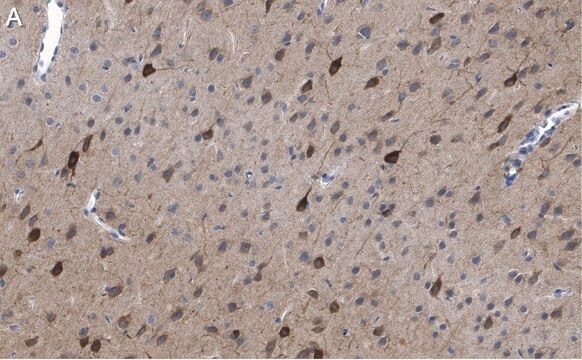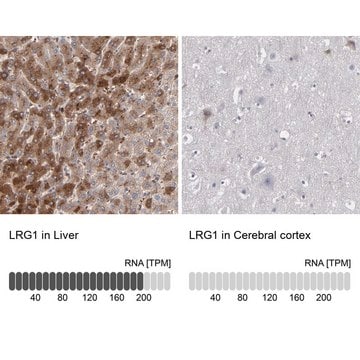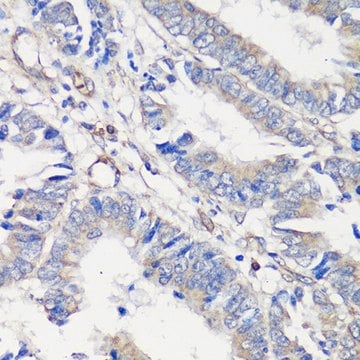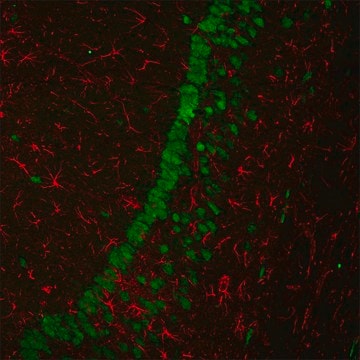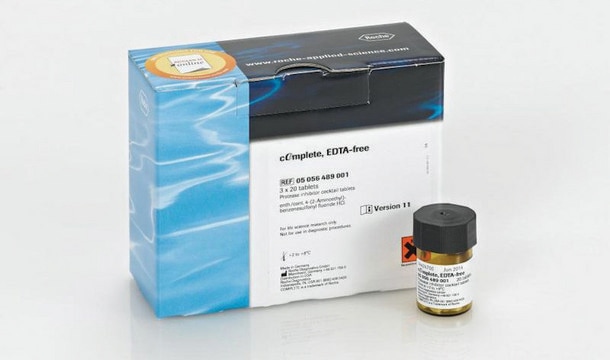ZRB2571
Anti-FasL/CD178 Antibody, clone 2O22 ZooMAb® Rabbit Monoclonal


recombinant, expressed in HEK 293 cells
About This Item
Recommended Products
biological source
rabbit
Quality Level
recombinant
expressed in HEK 293 cells
conjugate
unconjugated
antibody form
purified antibody
antibody product type
primary antibodies
clone
2O22, recombinant monoclonal
description
recombinant, expressed in HEK 293 cells
product line
ZooMAb® learn more
form
lyophilized
mol wt
calculated mol wt 31.48 kDa
observed mol wt ~40 kDa
purified by
using Protein A
species reactivity
human
species reactivity (predicted by homology)
monkey
packaging
antibody small pack of 25
greener alternative product characteristics
Waste Prevention
Designing Safer Chemicals
Design for Energy Efficiency
Learn more about the Principles of Green Chemistry.
enhanced validation
recombinant expression
Learn more about Antibody Enhanced Validation
sustainability
Greener Alternative Product
technique(s)
affinity binding assay: suitable
flow cytometry: suitable
immunocytochemistry: suitable
immunohistochemistry: suitable
western blot: suitable
isotype
IgG
epitope sequence
C-terminal half
Protein ID accession no.
UniProt accession no.
greener alternative category
shipped in
ambient
storage temp.
2-8°C
Gene Information
human ... FASLG(356)
Related Categories
General description
Specificity
Immunogen
Application
Evaluated by Western Blotting in human bone marrow tissue lysate.
Western Blotting Analysis (WB): A 1:10,000 dilution of this antibody detected FasL/CD178 in human bone marrow tissue lysate.
Tested Applications
Western Blotting Analysis: A 1:10,000 dilution of this antibody detected His/ABP fusion-tagged, recombinant fragment of human FasL/CD178.
Flow Cytometry Analysis: 0.1 µg from a representative lot detected FasL/CD178 in one million Jurkat cells.
Immunohistochemistry (Paraffin) Analysis: A 1:1,000 dilution from a representative lot detected FasL/CD178 in human spleen and colon tissue sections.
Affinity Binding Assay: A representative lot of this antibody bound FasL/CD178 peptide with at least one thousand-fold (10,000X) higher than with non-specific control peptide.
Immunocytochemistry Analysis: A 1:100 dilution from a representative lot detected FasL/CD178 in Jurkat cells.
Note: Actual optimal working dilutions must be determined by end user as specimens, and experimental conditions may vary with the end user.
Target description
Physical form
Reconstitution
Storage and Stability
Legal Information
Disclaimer
Not finding the right product?
Try our Product Selector Tool.
Storage Class Code
11 - Combustible Solids
WGK
WGK 2
Flash Point(F)
Not applicable
Flash Point(C)
Not applicable
Choose from one of the most recent versions:
Certificates of Analysis (COA)
It looks like we've run into a problem, but you can still download Certificates of Analysis from our Documents section.
If you need assistance, please contact Customer Support
Already Own This Product?
Find documentation for the products that you have recently purchased in the Document Library.
Our team of scientists has experience in all areas of research including Life Science, Material Science, Chemical Synthesis, Chromatography, Analytical and many others.
Contact Technical Service